
A real-world study showed that cladribine tablets were associated with greater treatment persistence and lower health care costs in patients with multiple sclerosis compared with other common therapies.

A real-world study showed that cladribine tablets were associated with greater treatment persistence and lower health care costs in patients with multiple sclerosis compared with other common therapies.

A new comparison study of patients with autoimmune diseases reported high rates of anxiety and depression, with notable differences in when psychiatric symptoms emerged relative to disease onset.

Take 5 minutes to catch up on NeurologyLive®'s highlights from the week ending February 6, 2026.

A phase 3b study presented at ACTRIMS 2026 is evaluating whether switching to remibrutinib offers efficacy and safety comparable to continued ocrelizumab treatment in relapsing multiple sclerosis.

Findings from a phase 1 study indicated that Lucid-21-302 was generally well tolerated and exhibited dose-proportional exposure, warranting additional study in a phase 2 trial for multiple sclerosis.

The senior research investigator at the New York Stem Cell Foundation discussed how human iPSC-based models can help dissect the cellular mechanisms underlying PIRA and progressive disability in multiple sclerosis. [WATCH TIME: 3 minutes]

New phase 3 FREXCITE trial tests frexalimab CD40L inhibitor in nrSPMS, comparing on-body subcutaneous vs IV dosing
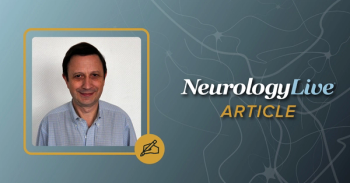
The analysis included 280 patients from CLARIFY-MS extension and 219 patients from MAGNIFY-MS extension, a total of 499 patients with at least 4 years of follow-up.
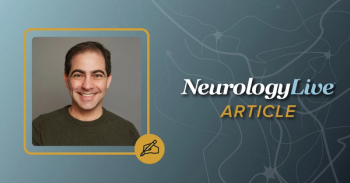
A cohort analysis, presented at ACTRIMS 2026, provided insight into the clinical characteristics, disease burden, and treatment sequencing of patients with neuromyelitis optica spectrum disorder treated with inebilizumab.
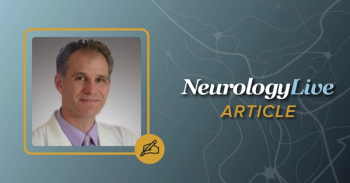
Real-world phase 4 data show cladribine keeps relapse rates low and safety steady in relapsing MS patients, including those 65+.

FASTEST finds rFVIIa curbs ICH bleeding fast but adds clot risk; ultra-early and spot-sign patients show promise as Part 2 continues.

Adding intra-arterial alteplase after successful endovascular thrombectomy significantly improved 90-day functional outcomes in patients with large-vessel acute ischemic stroke, according to late-breaking data from the phase 3 CHOICE2 trial.

Late-breaking data from a substudy of the CREST-2 trial revealed that carotid revascularization did not show greater improvements in cognitive function compared with intensive medical management.

Newly reported data showed that oral valiltramiprosate lowers p-tau217 and links to cognitive and brain-volume benefits in early Alzheimer disease.

The director of the Center for Clinical Ethics at Yale New Haven Health discussed the rationale behind the newly published AAN guidelines on functional seizures, outlining diagnostic priorities, evidence-based treatment recommendations, and key gaps.

In honor of National Women Physician’s Day, the NeurologyLive® team highlighted recent studies on women transforming neurologic care and advancing women’s health.

Aleksandra Pikula, MD, DipABPN, DipABLM, FELMO, director of the JS Sonshine Center, shares her personal view on National Women Physician’s and why it’s important for clinicians and patients in the field.

ALS expert Merit Cudkowicz, MD, MSc, provided thoughts for National Women Physicians Day, reflecting on resilience in ALS research, the power of mentorship, and how leadership and advocacy can shape a meaningful career in neurology.

As part of National Women Physicians Day, a group of women clinicians discussed various topics in the care for women with movement disorders.

Riley Bove, MD, MS, associate professor of neurology at the University of California San Francisco, shares her personal view on National Women’s Physician’s and why it’s important for clinicians and patients in the field.

Epilepsy titan Page B. Pennell, MD, FAES, FAAN, FANA, outlined key hormonal, reproductive, and treatment-related factors that influence epilepsy management and outcomes for women in different life stages.

Claire Henchcliffe, MD, DPhil, an international leader in Parkinson disease research, reflects on mentorship, leadership development, and the systemic changes needed to support long-term success for women in neurology and clinical neuroscience.

In honor of National Women Physicians Day, held February 3, 2026, a trio of women clinicians highlighted the importance of individualized care for women living with multiple sclerosis.

Janis Miyasaki, MD, MEd, FRCPC, FAAN, a pioneer in neuropalliative care, provided clinical thoughts and perspectives on National Women Physicians Day and the ways to promote women leadership within the neurology field.
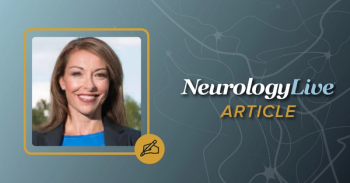
The FDA approves the FreedomEDGE infusion platform for rozanolixizumab, enhancing treatment options for generalized myasthenia gravis in clinical settings.

The director of the Center for Clinical Ethics at Yale New Haven Health outlined how the AAN guidelines address the role of pharmacologic therapies in functional seizures, including what evidence exists and when medications should or should not be used. [WATCH TIME: 3 minutes]

Here's some of what is coming soon to NeurologyLive® this week.
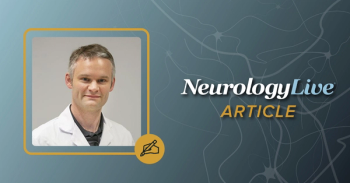
Anti–interleukin-6 receptor therapy may offer a new treatment option for patients with NMOSD and MOGAD who do not respond to rituximab, according to new findings.

Test your neurology knowledge with NeurologyLive®'s weekly quiz series, featuring questions on a variety of clinical and historical neurology topics. This week's topic is on diagnosing parasomnias!

Test your neurology knowledge with NeurologyLive®'s weekly quiz series, featuring questions on a variety of clinical and historical neurology topics. This week's topic is on the ACTRIMS and its history!